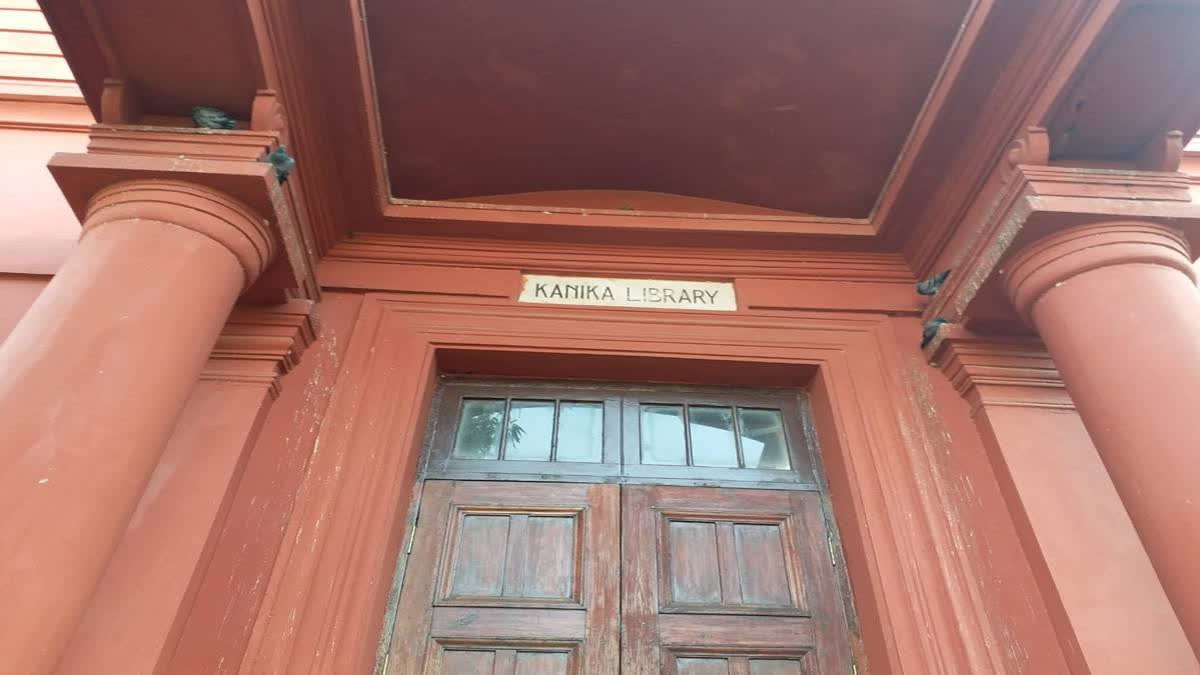Cuttack: The depth of Francis Bacon's statement 'Reading maketh a full man,' can be gauged the moment one steps into the Kanika Library within the precincts of Ravenshaw university, Cuttack. Hundreds of students, making a space in some table or shelf, browsing through innumerable stacks of books, flipping over pages or jotting down notes certainly is a sight to behold, for, library reading has become a rarity in the present day with the web browser ruling the roost.
For over a century, the Kanika library has been silently yet powerfully nurturing brains, shaping lives, and mirroring the world through the printed words. Now at the crossroads of history and innovation, the Kanika Library has restructured itself to suit the best interests of students, some who access the printed words through original books, others get it in the digitised modes, and many visually challenged who quickly get the braille script.
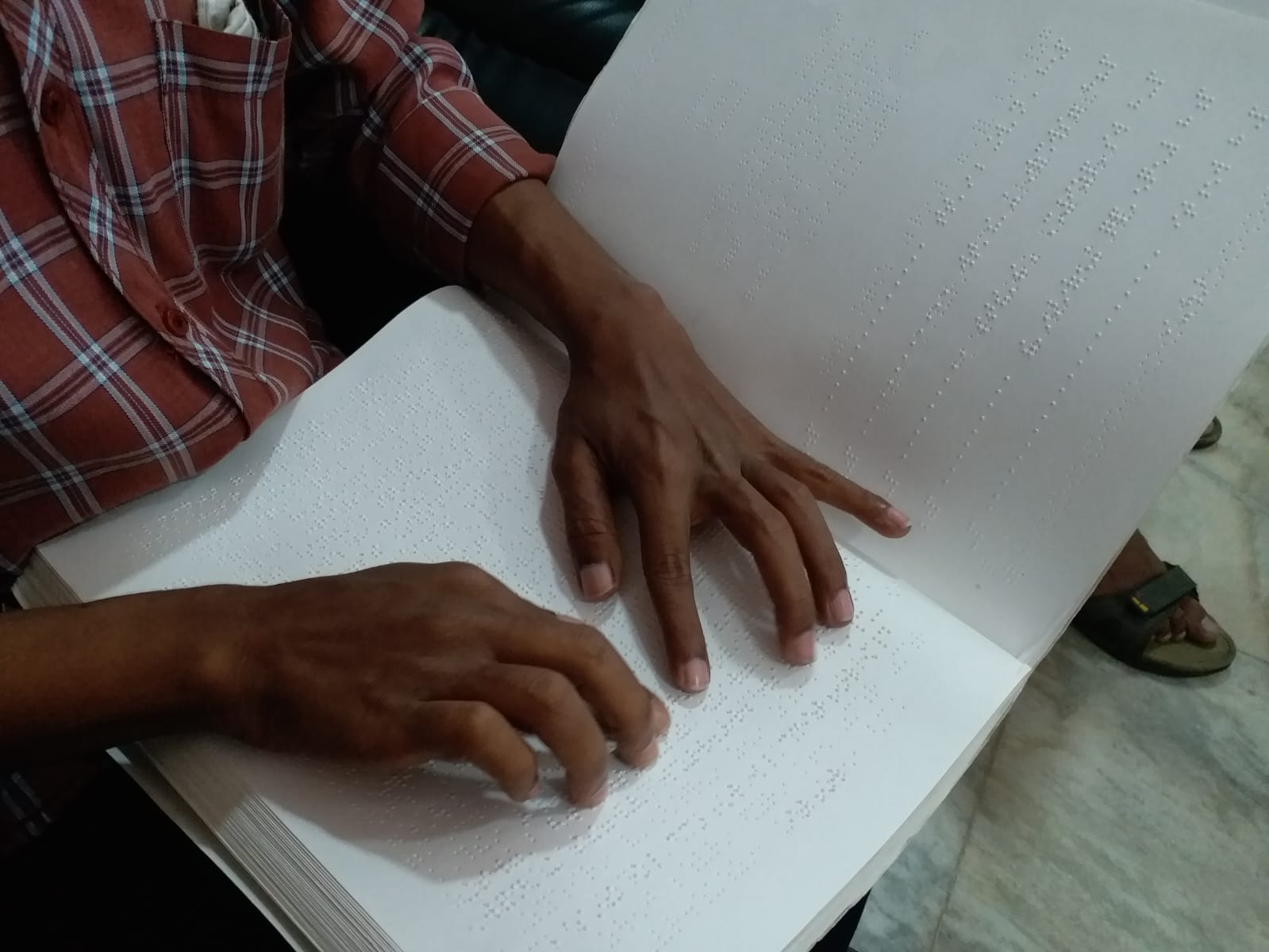
Founded in 1922 by Rajendra Narayan Bhanjadeo, the King of Kanika, this library began with a modest collection of books and a vision to make education accessible to all. As the university marks its 100-year milestone, the library takes a historic leap toward inclusivity by introducing the Bhima Bhoi Braille Section—Odisha’s first fully equipped Braille library for visually challenged students.
Braille Library: A Beacon for Visually Impaired Students
In 2013, on Ravenshaw University’s Commemoration Day, the edifice of learning took a big leap toward inclusivity by establishing a Braille Library. With the help of advanced software like JAWS, NVDA, and Kurzweil, visually impaired students can now access study materials effortlessly.
Abhiram Mahanadia, a visually impaired postgraduate student in political science, expressed his gratitude for the facility. “The Braille Library has transformed our learning experience. It empowers us to study independently, just like any other student,” he said. “We can now study independently and enhance our knowledge using screen-reading software and other tools. This is a privilege no other university in Odisha offers.”

Books scanned and printed in Braille cater to the specific needs of these students, while audio-visual aids further enhance their learning process. The introduction of modern Braille printers capable of supporting eight Indian languages has made education more accessible than ever before.
A micro-recording system allows students to record classroom lectures and later print them in Braille. “The library assistants are always ready to help. We get the print outs with ease,” says Chandramani Mallick, another visually challenged student. “They help us scan materials and prepare Braille copies, even for large texts.”
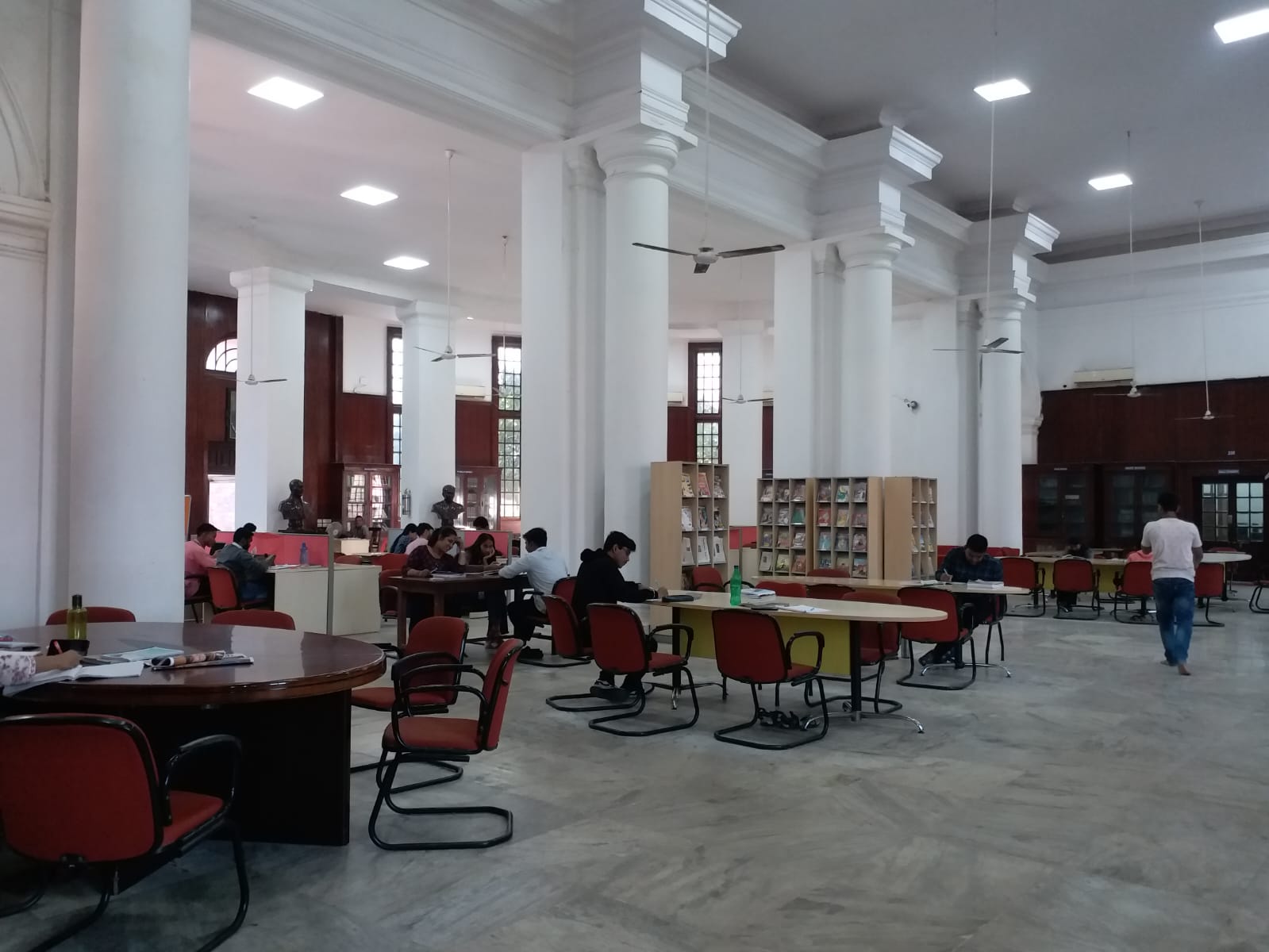
With hostel-wide Wi-Fi and mobile-compatible AV files, the students can access digital content on their phones. General knowledge books and other resources are converted into formats suitable for visually challenged students, ensuring they stay at par with their peers.
For those like Abhiram and Chandramani, the Braille section is more than just a facility—it is a lifeline. “We are blessed to have such a facility. Our seniors who had no access to braille script printing had to adjust in myriad ways. But we are fortunate enough to have a revolutionary system in place that gives us an added advantage,” says Abhiram. “It truly changes our lives,” he adds.
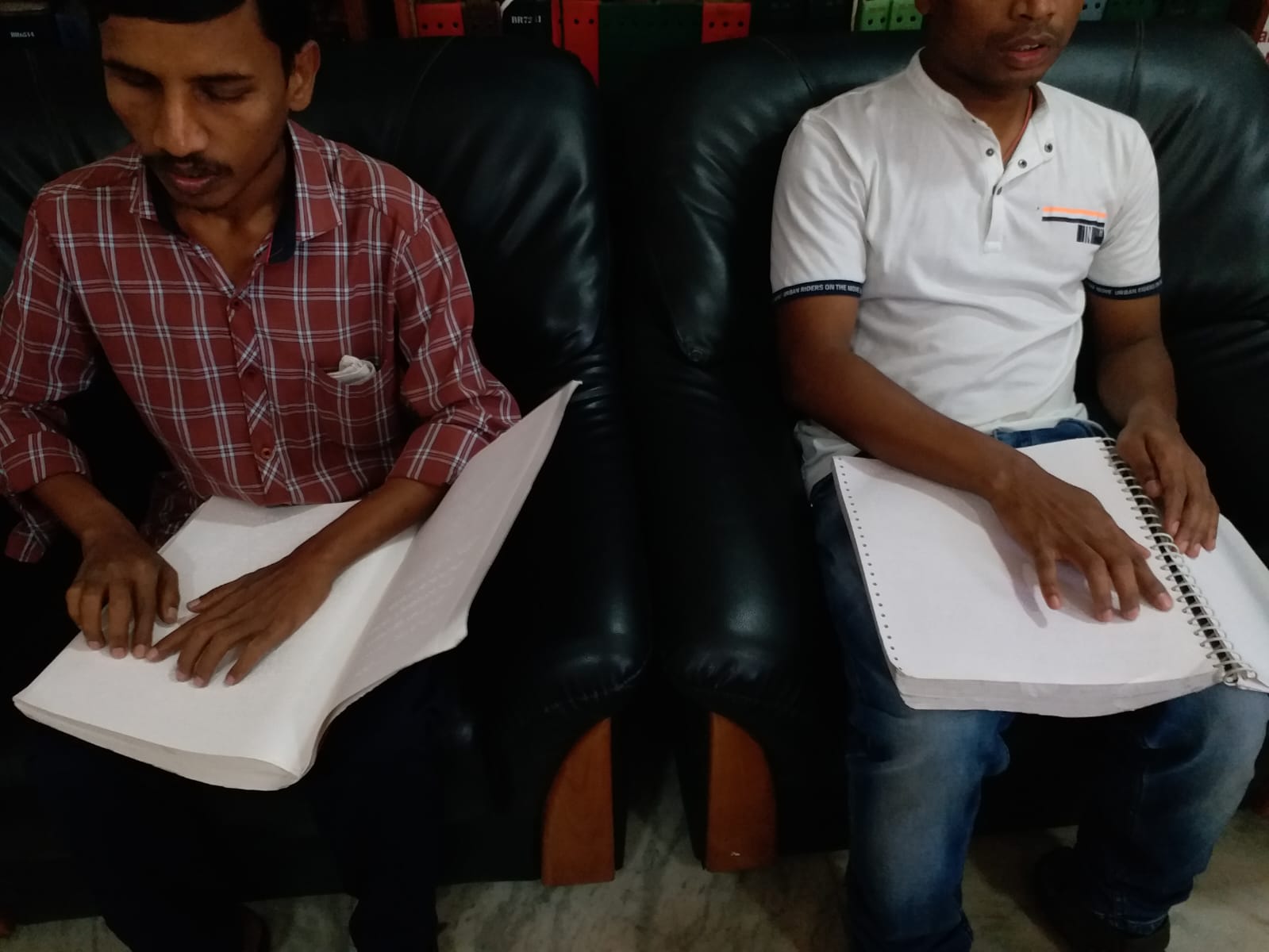
"Earlier there was a lone Braille printer, but now a modern machine has been brought in. Any book that is scanned in the printer prints out Braille script in eight Indian languages," informs Dr. Luna Samanta, the in-charge of CPGC at Ravenshaw University. She however adds that Odia has not been included among the eight languages. "The training has begun for Odia and soon, the braille script can be accessed in Odia as well," she adds.
The Kanika Library
The library was established with an initial investment of Rs 55,000, a huge amount in 1922. King Bhanjadeo’s vision was simple yet profound: to create a space where students could access the wealth of knowledge contained in books. What started as a single building with a limited collection has now evolved into a sprawling knowledge hub, encompassing the Kanika Library, the Centenary Library, and the state-of-the-art e-Resource Library.

The Kanika Library houses some of the oldest and rarest books in the state, with publications dating back to 1836-37. These fragile manuscripts are preserved through chemical treatments and have also been digitized, ensuring their longevity and accessibility. Over 1,000 digitized books are available for students and researchers, reflecting a seamless blend of historical preservation and technological advancement.
For researchers like Dr. Omkar Raut, a researcher at Ravenshaw University, the library is a lifeline. “The library is the soul of an educational institution. With access to rare journals and soft copies, it significantly reduces research costs and aids in scholarly pursuits,” he said. Not only Rout, many others like him have benefited from the massive stock of books, which are not found elsewhere.
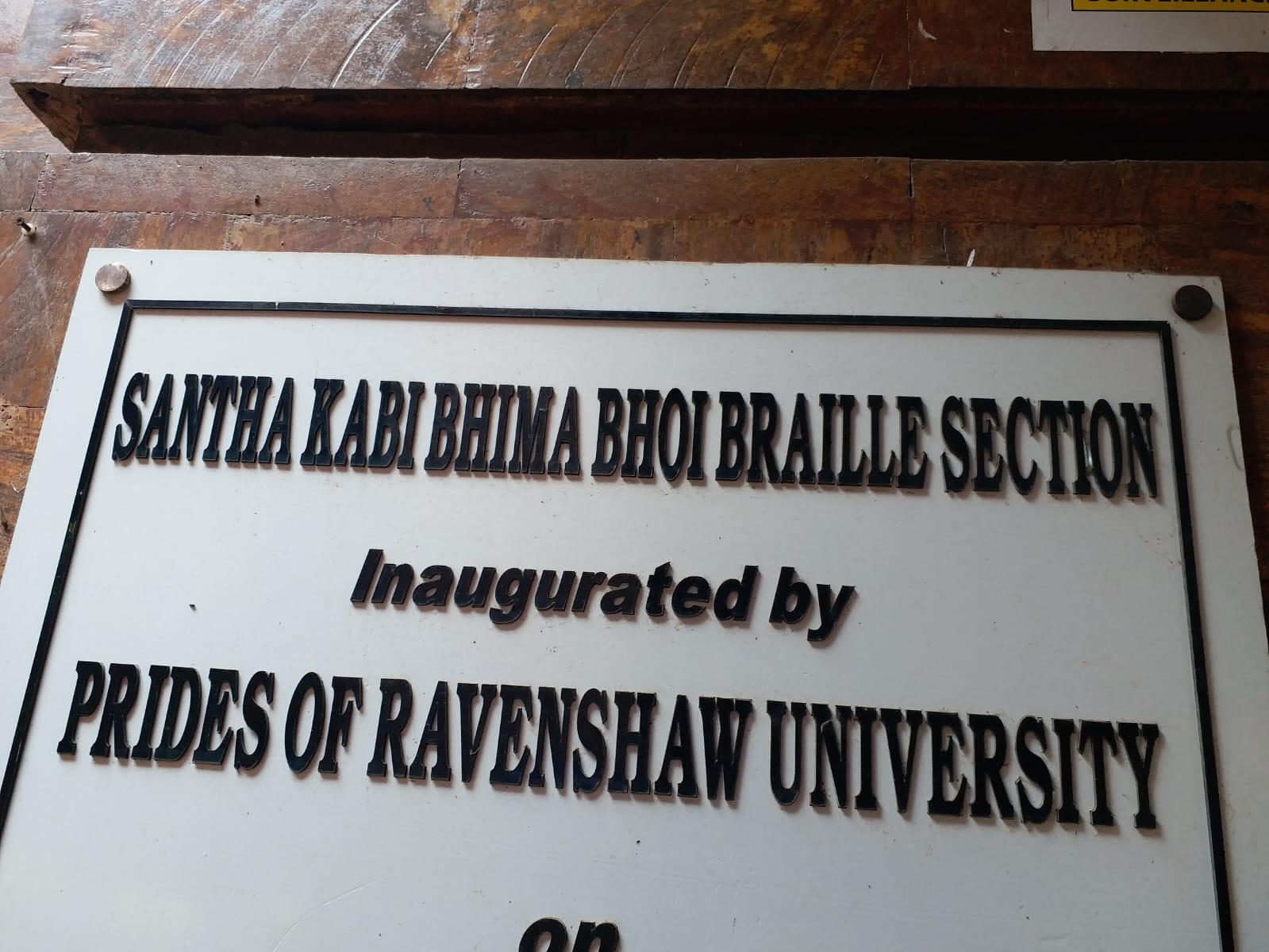
Located behind the Centenary Library, the three-storey E-Resource Library is a modern marvel. Over the years, the library has expanded into a state-of-the-art knowledge hub. With support from RUSA funding and state government initiatives, it now houses an advanced e-resource center equipped with 100 Apple Mac systems and RFID infrastructure for seamless book access. The digitization of 16,000 rare books, including ancient manuscripts like the Atharva Veda, ensures their preservation while making them accessible to researchers and students alike.
Its ground floor hosts a unique music library named after the legendary Akshay Mohanty, featuring a collection of one lakh songs in multiple languages, from Odia to Urdu. This facility is particularly beneficial for music researchers, drawing students not only from Ravenshaw but also from other universities across India.
The Centenary Library offers a modern approach to book retrieval, allowing students to locate books through a computerized system. With seating for over 500 students, it provides a serene environment for study and research. “The ability to search and retrieve books independently has revolutionized how we study,” said a student enthusiastically.
Open for All
While the Kanika Library primarily serves Ravenshaw University students, it also welcomes others, including foreign students, through a special pass system. This ensures that knowledge remains accessible to anyone willing to seek it. Dr Samanta said, “Any student, irrespective of their background, can benefit from our resources. Knowledge should never be restricted,” she said. The library offers temporary passes for a nominal fee. However, books are not issued to external members to preserve its extensive collection, she added.
“Kanika Library is not just a library; it is the soul of Ravenshaw University,” says a faculty member. Apart from students, researchers and faculty, who benefit from the massive repository of books, the Kanika library has turned into a heritage space in the Millennium City Cuttack.
Read More
